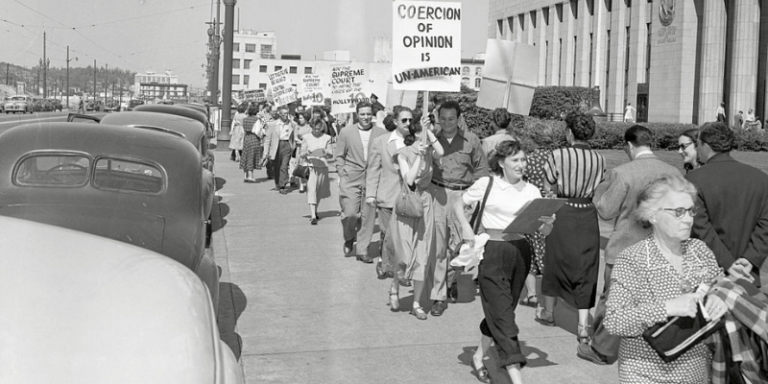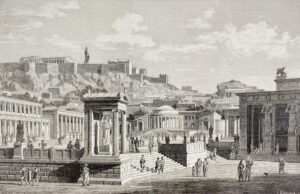Free Speech Has Always Been a Game of Life or Death
It takes real courage to speak the truth when powerful foes would rather see it silenced.
By: Mark Angelides | September 23, 2020 | 434 Words

free speech protest California (via Getty Images)
While some would argue that we can create a more civil society through regulating speech, it seems that these efforts to silence are little more than tyranny. They may be an attempt to manipulate not just what we say but what we permit ourselves to think. And this, in every sense of the word, is dangerous.
Is It About Truth – Or Control?
The problem is: Those who wish to control speech are not really interested in creating a more inclusive world. If they wanted a kinder culture, they would not be trying to silence those who disagree with them. What they want is control – nothing more, nothing less.
They know it is impossible to control every person individually. Instead, they want to create a social structure in which people edit themselves out of fear of being excluded.
We often look at today’s “cancel culture” as a modern phenomenon. It’s not. The only difference now is that the “cancellers” have almost total control. We need to look back to earlier days when the powerful and influential in society were the ones who stood up for the freedom of speech and expression.
On March 15, 1783, George Washington gave a speech to his officers. It is known now as the Newburgh Address. He encouraged his officers to petition Congress, even though he disagreed with their behavior. Washington understood that all men and women must be able to exercise their own expression.

Athens, Ancient Greece. Photo by: Universal History Archive/Universal Images Group via Getty Images)
The Risks of Speaking Your Truth
Speaking your truth is an incredibly old concept. We can trace it back to ancient Greece around 500 BC. There’s a word: parrhesia. It has a few different translations, but at its core, it means “to speak boldly.”
In Ancient Athens, parrhesia was a fundamental component of democracy. If you could not speak out in a public forum, then democracy was denied. All must be able to speak what they see as the truth.
There were many times throughout history when the freedom to speak freely was denied. But it didn’t have to be that way. Those who spoke out against dictators and were called “political dissidents” were either sent for re-education, executed or disappeared never to be heard from again. And they could have been saved if the people had said “no” to control before it was too late. For now, we can choose to remain silent; eventually, it will be enforced.
Telling the truth is, and always has been, a game of life and death.
















